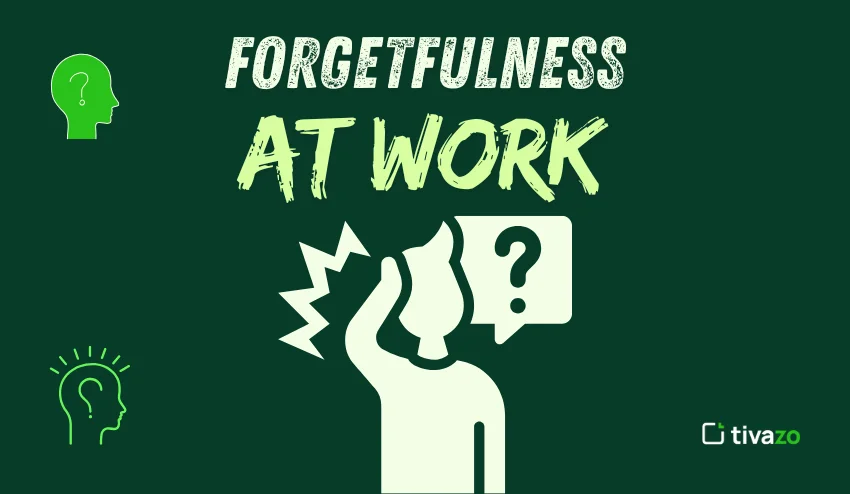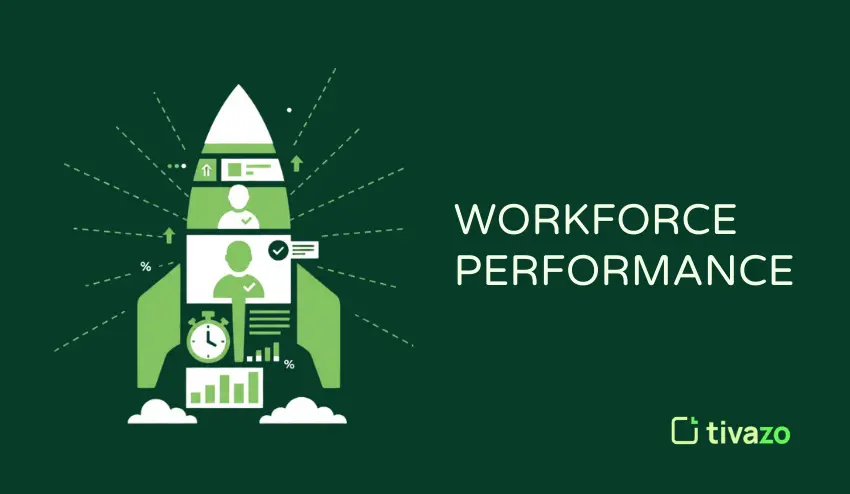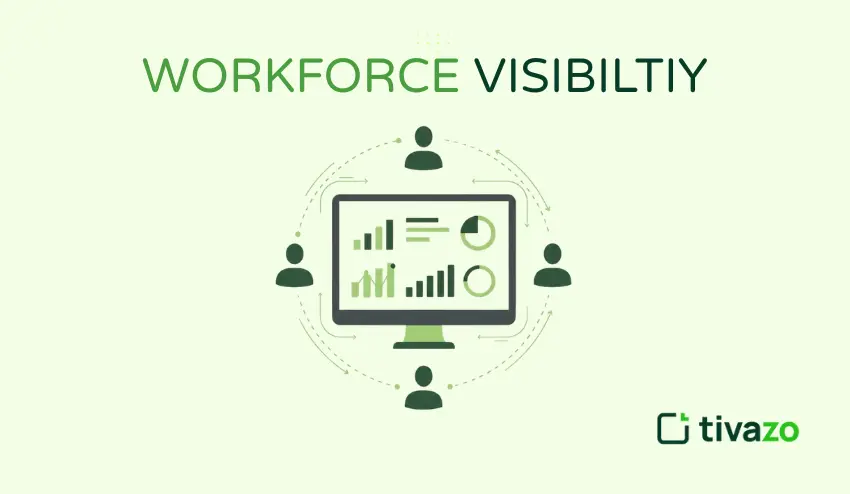Forgetfulness is a typical challenge that inhibits productivity, confidence, and team performance at work. Forgetting deadlines, misplacing documents, and forgetting tasks are all very common, and managing forgetfulness at work is vital for professionalism. Hunger and fatigue are some reasons causing forgetfulness, as well as the usual factors of multitasking or stress. Many employees forget things at work every now and then, which is perfectly normal, but frequent forgetfulness impacts productivity, increases stress, and diminishes the quality of workplace relationships. Admitting to forgetfulness at work and why it happens is the first step to acclimating to the conditions.
Managing forgetfulness at work is a way to stay on top of responsibilities and to be seen as a reliable, hard-working, and good employee. By implementing organization strategies, priority and structure related digital tools, and habits around mindfulness, forgetfulness will occur less frequently, and so will anxiety about forgetfulness. This guide will provide easy, actionable suggestions and techniques for identifying triggers for your forgetfulness, followed by managing priorities and memory. These suggestions and techniques will allow you to remain focused in the workplace and tend to your workday productivity.
Recognize Unforgetfulness at Work
Before we can develop a plan and solutions, it helps to recognize triggers of forgetfulness. Some common triggers are:
- Stress and anxiety: Elevated stress levels impair memory, and the release of cortisol, the stress hormone, interferes with memory storage and recall. The longer the duration of the stress, the more difficult it is to retain information in a work setting.
- Multitasking: Performing multiple tasks decreases focus and short-term memory capacity. The brain has 5-9 available slots for information at one time, and we often forget significant information in the process.
- Sleep issues: Poor sleep can affect cognitive aspects and the consolidation of memory when awake, and sleep can worsen forgetfulness at work.
- Disorganization: An unorganized workspace and poor workflow an easy ways of forgetting tasks altogether.
- Technology Overload: Constant emails, notifications, and messages can inhibit clear thinking and memory management in the workplace.
By identifying these common triggers, people will see what is contributing to memory failure while at work, and initiate a planning process. First, awareness and identification will assist people in planning for the trigger and developing strategies and routines to remember in a workplace environment. In knowing the trigger, you will be able to eliminate memory failure in the workplace context and not degrade your professional competence.
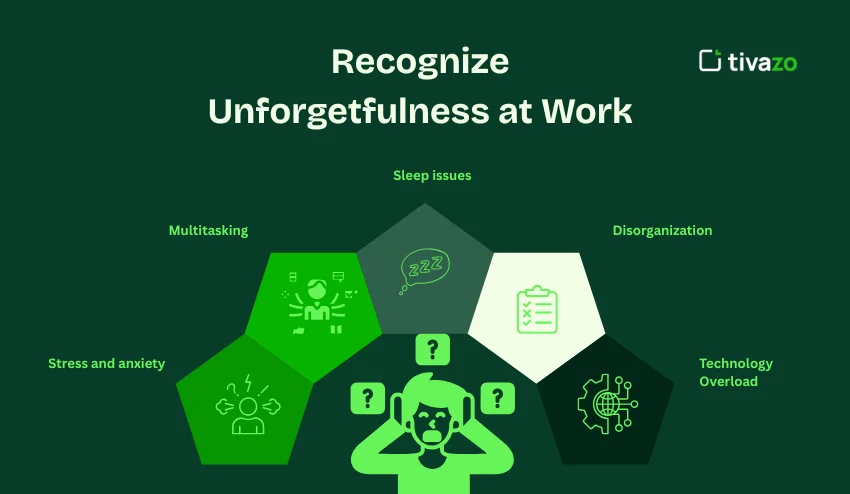
How to Manage Forgetfulness at Work
Dealing with forgetfulness at the workplace can begin with a few small, actionable steps that help create a sense of daily consistency and structure. Forgetting things is often a result of overwhelm or disorganization, and the right strategies will help lessen that.
1. Prioritize Tasks – Daily, utilize to-do lists or task-management tools to capture all daily tasks. Determine the primary tasks to complete for larger projects, broken into pieces in a manner that is manageable and easier to remember.
2. Set Reminders – Calendar reminders, phone alarms, or task management apps can be used to create external reminders to free your mind for memory retrieval instead of holding it up in your working memory. Automating reminders establishes routine and helps reduce forgetting factual issues.
3. Reduce Multitasking – Focusing on completing a single task improves focused effort, increases cognitive efficiency, and strengthens retention of memory.
4. Take Breaks – Short, scheduled, timed breaks help to refresh and help your brain process more efficiently.
5. Good Lifestyle – Get sleep. Eat well-balanced, drink water. Get exercise. All of these contribute to clear memory.
In addition to these mechanisms for managing remembering, establishing a common routine is also a necessary mechanism, too. When you review your task list at the beginning or end of a workday, for example, it can strengthen your ability to retrieve a list of tasks and keep from forgetting any tasks. In addition to managing forgetting to do things, a structured system works to establish heightened confidence and reliability in the workplace.
How to Deal with Forgetting to Complete a Task at Work
Even the most careful employees forget tasks every once in a while. The important thing is to be able to manage the situation positively and professionally so that it does not impact your reputation or relationships at work.
- Acknowledge and Take Action: Recognize that you forgot and quickly take action to manage or fix the situation. It is always better to admit fault – it shows accountability and growth.
- Communicate Effectively: Inform other team members or supervisors of the forgetfulness at work so they can properly manage or support you going forward.
- Create a System: Continuously manage an individual system for tracking the tasks and deadlines that regularly recur, using some kind of technical or paper-based approach.
- Refine and Observe: Spend some time analyzing what led you to forget the assigned task – are there any simple changes you can implement to reduce the risk of forgetting in the future?
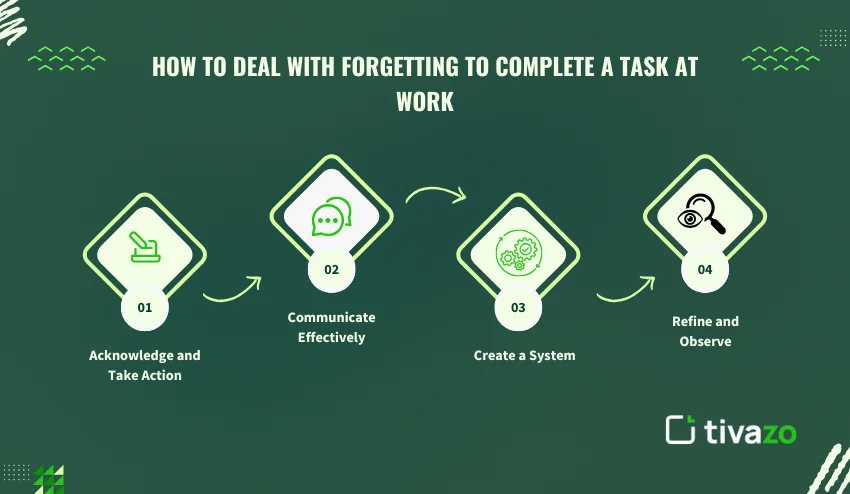
| Type of Mistake | Recommended Next Step | Prevention System |
| Missed a deadline | Connect with your supervisor to inform them and attempt to reschedule | A great strategy is to use calendar reminders (e.g., Outlook, Google Calendar, etc.) |
| Recommended Next Step | Prevention System | Use calendars and sync calendars with colleagues |
| Lost a document or file | Find it quickly or create it again as fast as possible | Have your files organized |
In all cases, managing your forgetfulness at work does include the need to develop and manage backup systems promptly. Double-checking deadlines, using a variety of alerts earlier than needed, and creating task lists that can be developed in advance will help, not in all situations, of course, but will reduce the chance that forgetfulness at work occurs often, and you will create the capability to respond more effectively. In my view, mixing honesty with systems creates credibility over time, but the vulnerability you create builds resilience as well.
Ways to Keep Up with Action Items
Keeping organized is vital to dealing with forgetfulness at work your job. Following a structure helps you not lose track of priorities and approach your tasks with confidence.
Use a Task Management App: Apps such as Asana, Trello, or Tivazo serve as a centralized way to monitor deadlines and progress and provide a checklist to lower your likelihood of forgetting items.
Schedule Your Day: The night before, plan your day to prioritize purposeful action items and concentrate on work in the mornings.
Head up Work: Chunking items over a few steps, instead of being overwhelmed, increases your focus on what is in front of you.
Use Visual Reminders: Sticky notes, a whiteboard, or a digital to-do list may provide relief in reminders.
Review Your Work: As part of reviewing your progress every week, identify any items that are not completed, measure what you have accomplished, and reset your priorities.
By consistently using these methods, managing forgetfulness at work will increase. It will give you, like I said before, consistent systems that will help diminish missed deadlines, increase productivity and efficiency, and enhance your sense of professionalism and credibility.
What is Causing Your Forgetfulness?
By determining what factors are affecting your forgetfulness, you will be able to address those root causes more efficiently. Forgetfulness at work is rarely random – it is dedication to patterns you are creating in your work environment, your workplace habits, and your lifestyle choices.
- Environmental Factors: Excess noise, constant interruptions, or a disorganized physical space can and will prevent focus, which affects recall.
- Mental Load: Cognition, or the act of thinking, may be overwhelmed when it comes to prioritizing too many things at once or overthinking things.
- Health Factors: Stress, lack of sleep, poor nutrition, or general fatigue and illness may exacerbate your memory forgetfulness at work.
- Emotional Factors: Anxiety, lack of motivation, or a lack of engagement tend to inhibit focus and recall of information.
Ultimately, when you take time to think about what might be causing your forgetfulness at work, managing forgetfulness at work becomes very manageable. For example, changes such as keeping your workspace organized, increasing sleep efforts, or finding stress-reduction techniques may substantially decrease your memory problems. As people make changes to address these triggers, you may find that you have created a healthier workplace environment – one where the employee is able to focus on his/her work, complete work expediently, and act dependably.
Beginning with recognition and removal of these triggers leading to forgetfulness at work may serve as a productive step forward in the management of forgetful behaviors while at work.
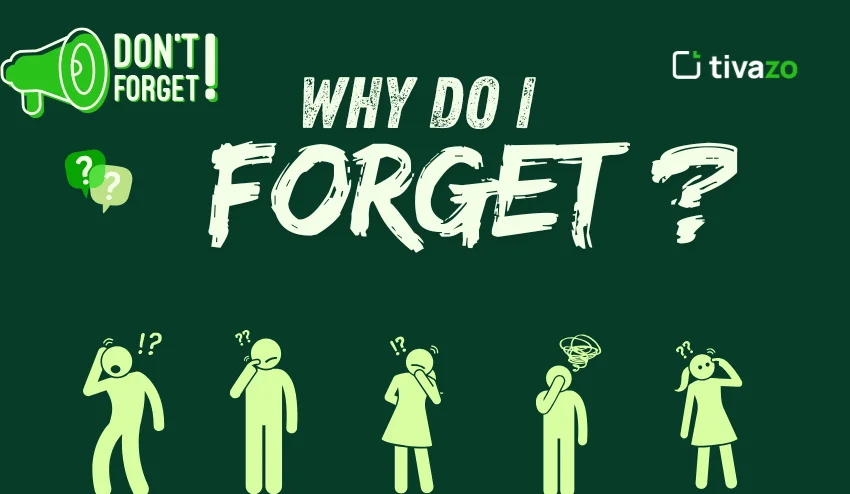
How to Conquer Forgetting in the Office
Overcoming forgetfulness at work requires prevention strategies and reactions to forgetting. Forgetting things periodically is normal; however, having regular strategies will help lessen the frequency of forgetting and how it impacts your day at work.
- Mindfulness Practices: Meditation and concentration practices can enhance clarity of thought in your mind, improving your ability to retain and recollect information.
- Routine and Consistency: Building habits around tasks that you have to do repeatedly will also help make things automatic and prevent forgetting steps in the process of completing that task.
- Delegate or Share Responsibilities: Relieving some of your own burden by providing for someone else to tasks will allow you to focus on more priority responsibilities.
- Regular Breaks and Self-Care: Taking a break, exercising, or creating a work-life balance are all preventative measures against forgetting, as forgetting often occurs when we burn out.
By creating a framework to support your brain in overcoming forgetting in the office, you combine structure, good habits, and mindfulness practices that increase resilience against the myriad of distractions thrown at you every day, allowing you to improve performance at work. Further, this proactive approach not only helps overcome someone rarely forgetting at work, but it also builds confidence and reliability.
Three Steps to Curb Forgetfulness Among Your Team
- Leaders can take ownership to make their teams accountable: Implement Task Management Systems: Organize tasks to control missed deadlines.
- Encourage Open Communication: Foster a safe environment where people can admit mistakes without feelings of doom.
- Provide Training and Resources: Teach them memory techniques, organization skills, and how to zone in.
| Step | Benefit |
| Task Management Systems | Reduces missed deadlines |
| Open Communication | Builds trust and accountability |
| Training & Resources | Provides empowerment for the team to manage their tasks more readily. |
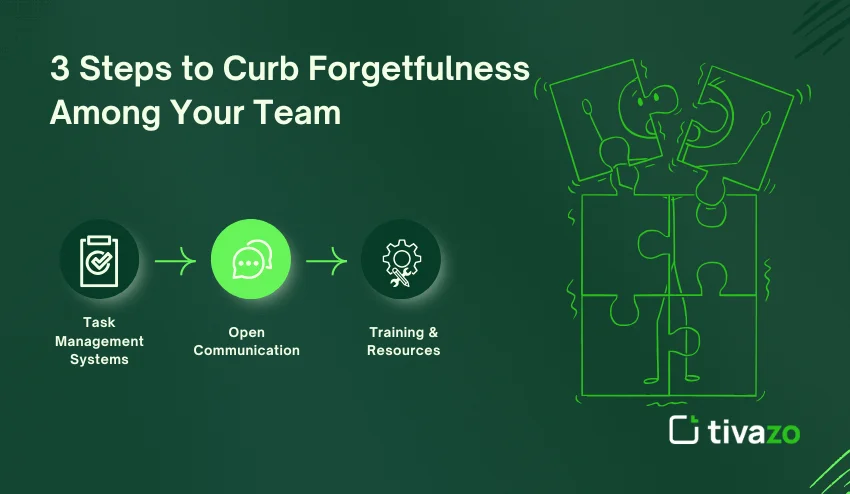
Daily Tip For Stronger Memory Power
A few habits can lead reduction in various ways. By establishing some major routines with simple sensory prompts, your memory can stay organized and sharp throughout the day.
- Have a physical or digital notepad: Writing things down physically helps your memory and provides assurance that you will remember an important detail.
- Have a review habit twice daily: Whether you review tasks during your morning coffee or at night before bed, a review habit structure will stimulate memory.
- Use color coding: Color-code tasks based on their importance and deadlines.
- Formulate short-term objectives: Maintaining motivation and establishing small milestones has been useful. Reduce distractions and plan your tasks: Silence notifications, close unneeded tabs, and time blocks aimed towards intentional work.
Conclusion
As you incorporate these practices over time, you will see less forgetfulness at work. When you tie visual cues to an organized planning system, you’ll develop a memory security net, which will pay dividends over time. Eventually, those habits will lessen forgetfulness at work while building your confidence, reliability, and ability to ultimately execute work every day.
It is possible to manage forgetfulness at work by having the right mindset and preparation, along with effective strategies. By recognizing triggers for forgetfulness at work, prioritizing work assignments, and using effective memory systems, a person and team can be more productive and feel less stressed. Using these strategies will help a person be dependable, confident, and competent in the workplace.
